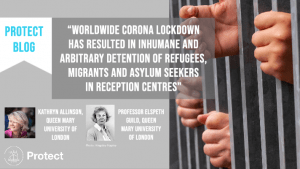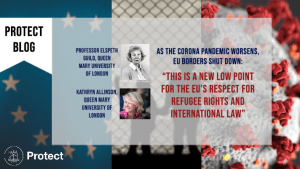by Kathryn Allinson, Lecturer in Law, University of Bristol
It has been a busy few weeks in the life of the Illegal Migration Bill with a record 20 amendments made to it by the House of Lords and the Court of Appeal declaring that removals to Rwanda are unlawful. However, what does this mean for those people seeking asylum in the UK?
Court of Appeal rules that removals to Rwanda are unlawful
The government’s proposed plan to send people seeking asylum to Rwanda was ruled unlawful by the Court of Appeal on Thursday, 29 June 2023. The case was brought by Asylum Aid as well as 10 people from countries including Syria, Iraq and Albania, who arrived in the UK in small boats. Whilst the High Court had supported the government’s policy, the Court of Appeal judges, Lord Chief Justice Lord Burnett, Sir Geoffrey Vos and Lord Justice Underhill, ruled that Rwanda was not a sufficiently safe country and there was too great a risk that genuine refugees could be returned to countries where they risked persecution. (more…)




